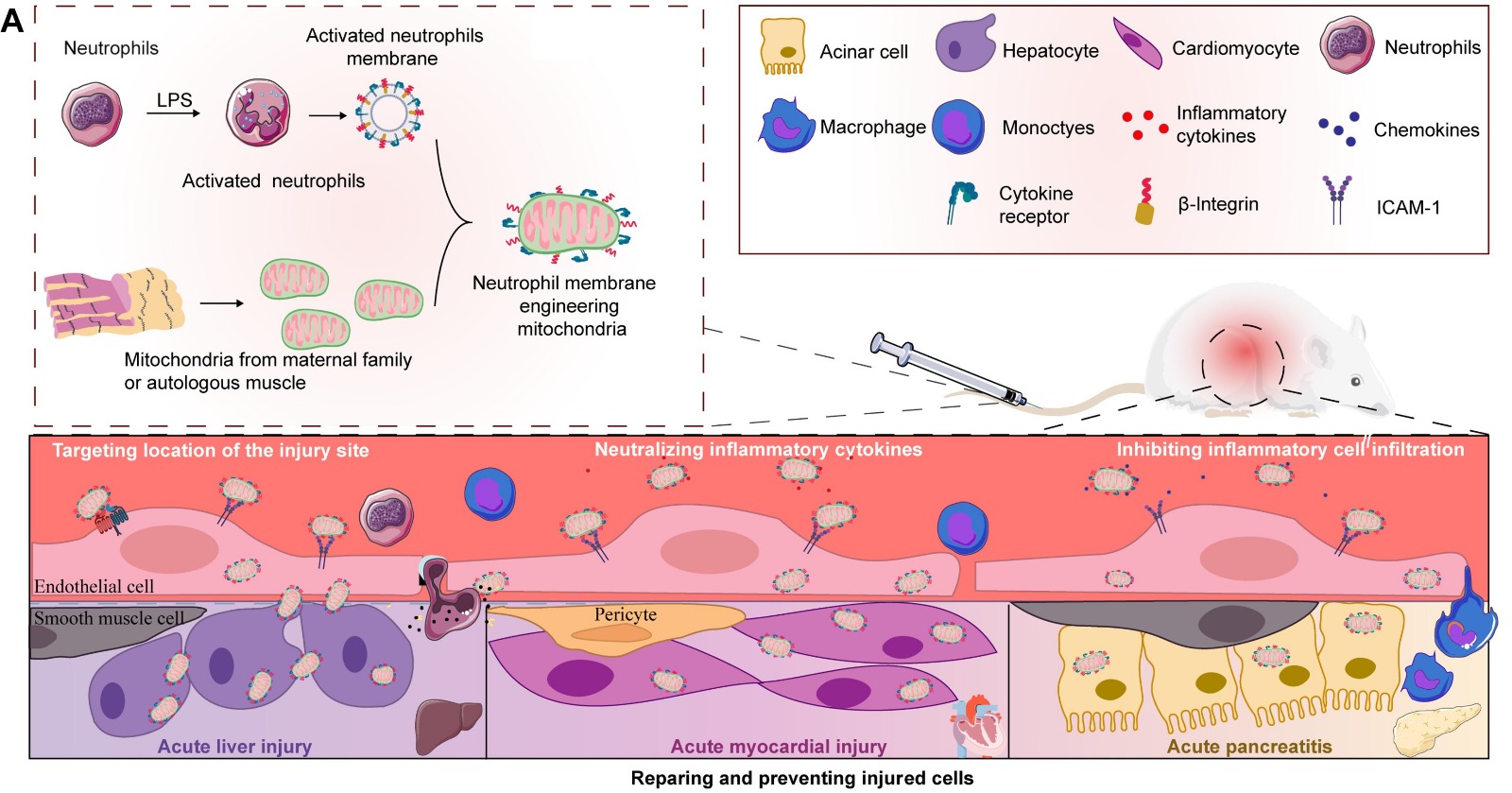Immunoengineered Mitochondria for Efficient Therapy

Acute organ injuries (AOIs) remain a significant clinical and public health challenge, often driven by inflammation and mitochondrial dysfunction.
A promising frontier? Mitochondrial transplantation
A recent study in Science Advances takes this concept further, presenting immuno-engineered mitochondria that can evade immune detection — enhancing their integration and therapeutic potential in damaged tissues.
Key Scientific Highlights
• Immunoengineering Concept: Mitochondria are coated or modified to interact more effectively with immune cells and inflamed tissues.
• Improved Uptake: Engineered mitochondria show higher levels of uptake by damaged cells.
• Enhanced Stability: Modified mitochondria remain functional longer within tissues.
• Anti-inflammatory Effect: Treatment reduces inflammation in models of acute injury.
• Effective Repair: Better tissue protection and regeneration were observed.
• Preclinical Models: Proven success in animal models of organ injury (e.g., liver, kidney).
This study demonstrates that immuno-engineered mitochondria can overcome the limitations of traditional mitochondrial therapy. By improving targeting and cellular interaction, they offer a more efficient way to treat AOIs. These findings pave the way for future research into precision mitochondrial medicine, with potential applications in a wide range of diseases involving mitochondrial damage and immune activation.
This innovation could pave the way for more effective interventions for ischemic injuries, kidney damage, and beyond.


